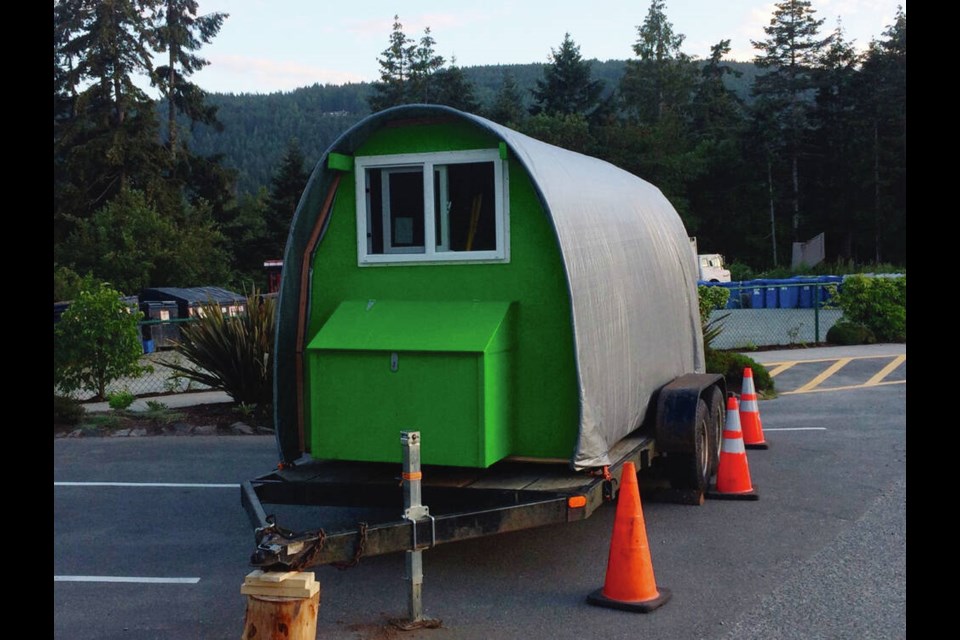Krista Loughton is one step closer to her dream of providing inexpensive shelters for people experiencing homelessness.
Loughton is part of a group called the Community Alliance for Sheltering Alternatives that is hoping to build “Conestoga” huts — named for Conestoga wagons that carried pioneers across the U.S. to the western states — for the unhoused in Greater Victoria.
By Monday, the group’s fundraising campaign had raised $5,300 — more than enough to build a prototype of the round-roofed hut. “We want to show people that it works,” Loughton said.
The huts are warmer and more substantial than a tent and have been used in cities in the U.S., including Eugene, Oregon, where about 200 huts are providing temporary shelter.
Each hut has 60 square feet of living space and a door that locks.
“It gives them a home base where they can protect their belongings,” Loughton said. “Unhoused people are handcuffed to their belongings. They can’t really get things done. Most people don’t understand what a barrier that is to improving your life. You can’t just leave your sleeping bag and tent unattended.”
Although it has the money, the biggest challenge facing the group is finding a location for the first hut, said Loughton.
Because it’s a community initiative, the huts have to go on private property.
Loughton said the ideal spot is a church parking lot. “My dream is to have one on every church parking lot in the Capital Regional District.”
The first Conestoga hut will be built for a homeless man and his dog who have been sleeping rough on Government Street despite snow and sub-zero temperatures.
The team is asking private citizens, businesses and churches for help. They are looking for property owners willing to host a single hut for a predetermined amount of time, preferably at a location with a public washroom nearby. They are also looking for groups of four volunteers to work as “settlement support teams” to help connect people to services.
The idea is to start small with one hut to shelter one person and build on that, Loughton said.
“The great hope is that we would do another one, and another one, and another one, and very quickly we’d get this done,” she said. “We’d pull in volunteers.”
On Salt Spring Island, members of the Wagon Wheel Housing Society, a grassroots organization committed to ending poverty, hunger, homelessness and isolation, built a Conestoga hut as a pilot project to show they could safely isolate the homeless during the pandemic.
The hut was on display in the parking lot of Country Grocer in the summer of 2020 and was later moved to private property to provide housing for a farmhand, who pays $50 a month to the society.
“We can build more,” said Cherie Geauvreau of the housing society.
“It’s a wonderful thing. You’re safe and warm and dry and wake up happy. You’ve got a locking door and a ventilating window, a built-in bed and storage space and you can have your dog in there.”
Victoria businessman Rob Reid, owner of Frontrunners Victoria and New Balance Victoria and a member of the group supporting the Greater Victoria initiative, said amid a cold winter, vulnerable individuals deserve a dry, secure place to live.
“It’s time we start talking about the crisis and do something about it,” he said.
Fellow CASA member Calen McNeil, co-owner of Zambri’s and Big Wheel Burger, said the Conestoga huts are a proven model that has worked in other cities.
“I fully support building a prototype Conestoga hut that can be used to inspire a new model of shelter to address the crisis of homelessness across the region,” McNeil said.
Anyone interested in getting involved with the Community Alliance for Sheltering Alternatives program can email casagreatervictoria@gmail.com.
ldickson@timescolonist.com



